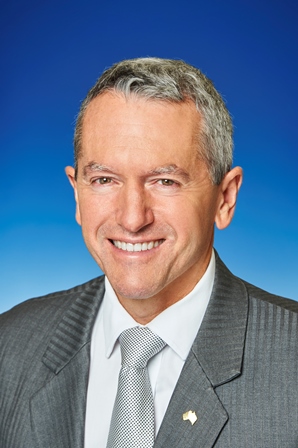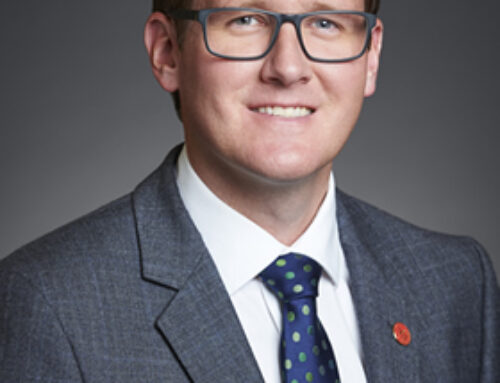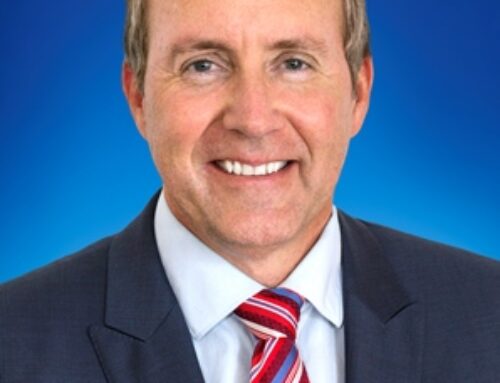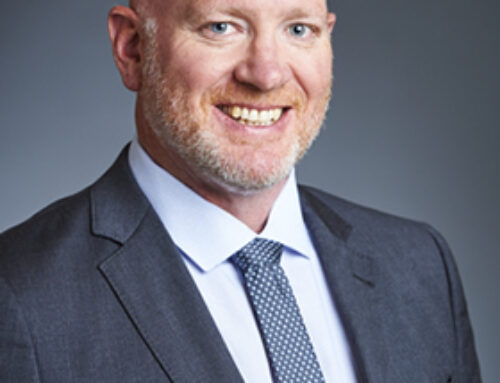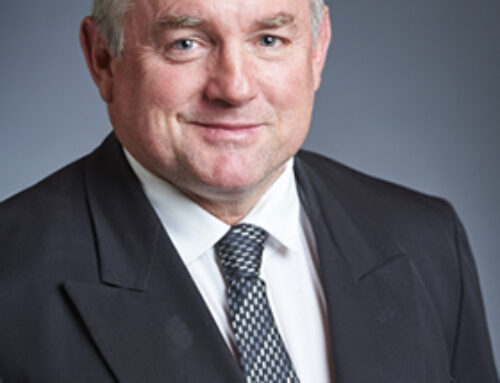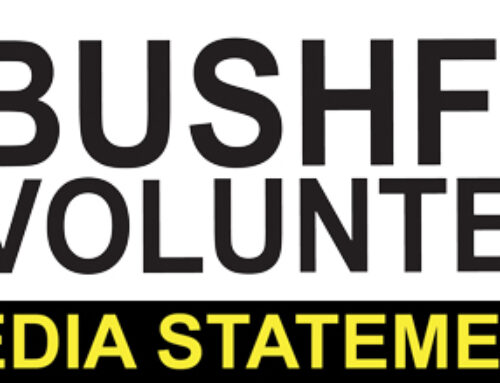The following Question Without Notice and subsequent Motion were presented by the Member for Warren-Blackwood Terry Redman in the Legislative Assembly today. The QWN was answered by Premier Hon Mark McGowan and speakers in response to the Motion were Shane Love (Member for Moore) and the Emergency Services Minister Hon Fran Logan.
For member’s interest and full understanding, this debate relates to this QWN asked by Hon Colin de Grussa yesterday in the Upper House and Terry Redman’s initial QWN asked in the Lower House on Tuesday.
DEPARTMENT OF FIRE AND EMERGENCY SERVICES VOLUNTEERS — CODE OF CONDUCT — COMMUNICATION WITH MEMBERS OF PARLIAMENT
Mr T. REDMAN to the Premier:
The Premier has often claimed that his government will act with a gold standard of transparency. Does this claim of gold standard transparency also apply to the Department of Fire and Emergency Services; and, if so, does the Premier support the mandatory code of conduct that gags volunteers from contacting or communicating with any federal or state members of Parliament regarding emergency services matters?
Mr M. McGOWAN replied:
The Minister for Emergency Services answered this question yesterday. I cannot really add much more to what he said.
Mr T. REDMAN to the Premier:
I have a supplementary question. In line with the minister’s response on Tuesday and the Premier’s response now, I have had many volunteers contacting my office, expressing concerns about this draconian code of conduct. Does the Premier now support reprimanding or penalising those volunteers for breaching the code of conduct and contacting my office?
Mr M. McGOWAN replied:
I understand that it has been created under the Public Sector Management Act. It may well have been there when the member was in government, but, in any event, if the member has questions of this nature, I urge him to pose them to the minister, as he did yesterday, and I thought the minister answered his question satisfactorily.
…
Standing Orders Suspension — Motion
MR T. REDMAN — without notice:
I move —
That so much of standing orders be suspended as is necessary to enable the following motion to be debated forthwith —
That this house calls on the Premier to instruct the Minister for Emergency Services to change the mandatory code of conduct for emergency service volunteers that gags them from communicating with their local MP on emergency service matters.
…I move the motion. It is interesting that in his response to the last question, the Premier said that it is a great thing that in this country we can go out and speak when the Premier has in his own ministry a minister who was trying to gag exactly that.
To bring the house up to speed, last week a general circular was put out by Darren Klemm, the Department of Fire and Emergency Services Commissioner on 18 June titled “DFES Code of Conduct Mandatory Online Training for All DFES Employees and Volunteers”. It states —
From Monday 22 June all DFES employees and registered DFES volunteers on eAcademy will be automatically enrolled onto the course and will receive confirmation of their enrolment via email. The course is mandatory and must be completed within 4 weeks of enrolment.
It is interesting that those who have started the process said that they do not like the mandatory component of it, and I can understand that. That is probably a debate for another day.
They also said that in doing the course, they are asked to sign up to a code of conduct that states, under the heading “Communication and Official Information” —
We must: …
• not contact or communicate with any Federal or State Members of Parliament regarding Departmental business; or invite or allow them onto any DFES premises unless authorised
We also know from question time today that the Premier backed in his minister on his position of saying that volunteers are not allowed to talk to their local MP. Therefore, we know where the Premier stands. It is interesting that we have a motion here calling on the Premier to intervene and he is not even in the house to listen to it.
What should a code of conduct have in it? I might add that I have a code of conduct here from the last government, which is signed off by Wayne Gregson, the commissioner at the time, on 9 February 2017 and it does not have the component that says that a DFES volunteer is not allowed to go and talk to their MP. It was not part of the last government’s code of conduct, but it certainly is part of this government’s code of conduct. What should be in a code of conduct if we are going to sign up DFES employees and volunteers? It should reference ethical and professional behaviour and how private and official information should be managed. In fact, a line in it says —
DFES members are obliged to maintain appropriate confidentiality about dealings we may have in the course of our work including the use and disclosure of private and official information.
That is appropriate. That is absolutely right, as it should be. However, what is in the code of conduct and what they are signing up to is —
We must:
• not contact or communicate with any Federal or State Members of Parliament regarding Departmental business; or invite or allow them onto any DFES premises unless authorised
It says that they must not contact. The very people who rang me and told me about this code of conduct, which is clearly a part of departmental business, have breached the code of conduct. It would be interesting to see what the Premier or government would do about that if they were to know their names.
What is also interesting is that it just refers to MPs. It does not refer to shire councillors. Even political candidates are not mentioned. A Labor candidate at the next election could be asked about something by a Department of Fire and Emergency Services volunteer, but a member of Parliament cannot. It does not refer to contacting the media; it just refers to responding to media inquiries and other members of the public in official positions.
What did we hear in the minister’s response after he was asked a question on Tuesday? He said that the government funds them and therefore it is going to control whom they talk to. A whole heap of government agencies are funded, but not one other government agency that I am aware of has a code of practice that says that the staff cannot talk to an MP. There is nothing about school boards not being able to talk to MPs. There is nothing about ambulance officers, who are largely funded by government. There is nothing about public servants, who are employees, not being able to contact MPs. There are issues around ethical and professional behaviour, quite rightly. Even Department of Education staff, who we would think might be very sensitised to conversations outside of their remit, do not have anything that says that they cannot talk to an MP.
What sorts of things might a DFES volunteer want to talk to their MP about? They might want to advocate for an upgrade of a facility. That is clearly departmental business, as defined in the code of practice, that they are not allowed to talk to anyone about. They cannot advocate for the upgrade of a facility. They might want to advocate for a safety matter in the business they do as a volunteer. They cannot do that. That is clearly the business of the department and comes under the code of practice. They might want to highlight other matters of public interest. I would have thought that gagging a volunteer is a matter of great public interest. Even just raising that matter is a departmental business issue. Clearly, the code of practice says that they cannot do that. They might want to highlight cultural issues within the organisation. Interestingly, one of the recommendations of the Ferguson review of the Waroona fire was about cultural issues within the organisation. That is clearly departmental business, which the minister says in the code of conduct they cannot talk to MPs about—the very issues that we are trying to resolve in this state. Of course, a whole range of things fall into this category of departmental business that they have been gagged from talking to MPs about.
This Premier came in on the back of a commitment to have rolled-gold transparency, and what do these people get? They do not get transparency. The government is trying to shut down volunteers from talking to their members of Parliament about issues that they might have. Before my colleague gets up and makes a comment, on Tuesday the minister said in response to a question that this does not affect volunteer bush fire brigades outside of DFES, but the minister’s agency has been sending emails to volunteer bush fire brigades saying that they have been signed up to do this mandated course over the next four weeks. They have been sending these emails to bush fire brigades in local shires. This is a bumbling minister because he blew that one. This bumbling minister has been making remarks in this house that do not seem to be true, because his agency seems to be doing something entirely different. It took this volunteer a day and a half to sort that out earlier this week. The minister needs to be brought to account for gagging volunteers from talking to their local member of Parliament.
MR S. LOVE:
I would like to make a very brief contribution to this very important motion that the member for Warren–Blackwood has brought to the house. It is important because volunteers are the core fabric of the rural communities that we represent. It is very worrying that the 2020 report that has just come out highlights that 5,000 DFES volunteers have been lost in the last nine years.
The total number of DFES volunteers has fallen from 31 450 in 2010–11 to just 26 487 in the last financial year. People will not be encouraged to come forward if they have to sign up to a code of conduct that bars them from talking to their local MP about issues. This is very important for local MPs. Last summer, a very large fire in the Yanchep area meant that some of my constituents were evacuated to shelters, including in Gingin. I went to the shelter in Gingin, and I think it was important that I went to the shelter in Gingin. That shelter was staffed by DFES volunteers. Now they will not be able to talk to me. How ridiculous is that! How can I represent the people in my community if I cannot talk to them?
We are talking about country towns where many of the key people are volunteers. This will mean that thousands and thousands of our constituents will not be able to talk to us about the very important issues that confront them. Sometimes it might be an issue that is too complicated to go through the normal structure of the DFES chain of command. I will very quickly outline one case in point. Some years ago, the Kalbarri Volunteer Sea Search and Rescue Group had issues with the channel markers in the mouth of the Murchison River—the most dangerous entry to a harbour anywhere in the country. The volunteers could not get those problems fixed through the normal channels, so they came to me and I went straight to the Minister for Transport and the problems were fixed. They will not be able to do that under this minister’s directions.
We heard the Premier say during question time that we live in a country where people can speak. That appears to be the case—unless someone is a volunteer for DFES and they want to speak to their local MP, the person who has been elected to represent them in all sorts of forums and who can cut across all those other barriers that might prevent a good outcome for the community! I regularly attend events that are largely about DFES volunteers, including debriefs after major fires at which people discuss the issues that have confronted them. It is vital that we continue to be able to do so.
MR F. LOGAN:
Here we are again revisiting what we talked about in 2018. On 30 October 2018, the exact same issue came up in this house. It was raised by the Leader of the Nationals WA. If members remember, it followed the visit by Nationals members to Port Hedland, who were claiming to be the cabinet. Remember, this was in October 2018—well after the election in March 2017. Members of the National Party were in Port Hedland trying to portray themselves as the cabinet. I still have the screenshots from the Nationals WA, the first of which states —
Some happy snaps from our Regional Cabinet sundowner at the uber cool #FioritaDeli …
The one from the Leader of the Nationals WA states —
Leader @MiaDaviesMLA addresses the Regional Cabinet launch in #Karratha—“we start with a sundowner because we’re the Nats and we like a bit of fun!”
If the member for Warren–Blackwood remembers, not only did he mislead the people of the Pilbara about what he was doing there, but also the captain of the volunteer marine rescue group assumed that the visitor who had contacted them to go and talk to them was the minister—me. He thought that the minister was going. He did not realise that it was a person who portrayed himself to be the minister.
Mr T. Redman interjected.
Mr F. LOGAN:
No; I did not interject on the member. It was a person who was portraying himself to be the minister—it was Hon Colin de Grussa…
Because of that, I refused his entry to that facility. The member for Warren–Blackwood raised the same issue then that he is raising now: “Why is it that we have to contact the minister before we are allowed into volunteer facilities?”
Why is it? The member asked the same question and I gave him the very clear answer. In that case, it was because he was misleading a poor vollie in Port Hedland. As a result, the Leader of the National Party wrote to me saying —
I am writing first to express our apologies. Colin de Grussa MLC and The Nationals Parliamentary team are in the Pilbara this week, meeting with various community groups and organisations as part of our regional cabinet program. I have been contacted by a DFES representative from Karratha expressing concern that our planned visits with various emergency services volunteers while in the Pilbara had not been approved by your office. This was an oversight on my behalf, as I had not queried whether we needed to seek permission to meet with these organisations. I apologise for this occurrence, and we will be sure to seek permission from your office for any future visits or meetings with emergency services volunteers.
That is from the Leader of the Nationals WA, Mia Davies. We have already been through this. Why do the Fire and Emergency Services Commissioner and the minister of the day require anybody—state MPs, federal MPs or representatives from any other bodies—to notify them if they are on the property of those volunteers that come under the responsibility of the commissioner? It is because the commissioner is responsible for every single person on that site, including visitors. Quite rightly, as the CEO of the organisation, he is entitled to know that, and, as his minister, so am I. There is nothing inappropriate about that. We are not talking about bush fire brigades because, really, all visitors to bush fire brigade sites should notify the CEO of the local shire. That is what they should do. But in this case —
Point of Order Mr D.T. REDMAN:
The minister is misleading the house. If I can explain why, to justify the point of order…. The point of order relates to volunteers who are part of the Department of Fire and Emergency Services and are not being allowed to contact their local member of Parliament. The minister is referring to members of Parliament contacting DFES volunteers.
The ACTING SPEAKER:
I think that is a matter of semantics. It is not actually a point of order, member. Debate Resumed
Mr F. LOGAN:
The commissioner is quite right to want to know who is on the property for which he is responsible. Section 9 of the Public Sector Management Act, “Principles of conduct by public sector bodies etc”, allows for codes of conduct and, in fact, encourages codes of conduct and ethical behaviour by all those people who come under a CEO. The member for Warren–Blackwood referred to the code of conduct. Those principles in the code of conduct, members of the National Party, have always been there. It is now clarified by way of putting them in writing and advising those volunteers. Regardless of what members opposite think and how clever they think they are, that code of conduct and the principles in the code of conduct, which I am just about to read out, have always been binding on volunteers who come under the Fire and Emergency Services Commissioner. He has now clarified it by way of this code of conduct. It
states that all people under DFES—under the commissioner—must —
• adhere to policies regarding communication and protocols with ministers, ministerial staff and lobbyists
• not contact or communicate with any Federal or State Members of Parliament regarding Departmental business; or invite or allow them onto any DFES premises unless authorised
• not respond to any media enquiries unless authorised
• avoid making critical comment or disclosing confidential information about the workplace, colleagues, employees and volunteers in electronic media and social networks.
That is the code of conduct. My advice from the commissioner is that those principles, which are governed by the Public Sector Management Act, have always been applied. If people come under the Fire and Emergency Services Commissioner, they come under those principles. It is now clarified in writing…
The issue of being able to talk to MPs and criticising the department was answered only yesterday in response to a question asked in the upper house by Hon Colin de Grussa when he asked exactly the same thing. This is the third part of his four-part question —
Are DFES volunteers afforded the same protections as DFES employees under the Public Interest Disclosure Act 2003 to allow whistleblowing for improper conduct; and, if not, will the minister commit to extending these protections?
My answer to that was —
Section 13 of the Public Interest Disclosure Act 2003 affords the same protection to everyone who makes a public interest disclosure, DFES volunteers included.
The issue that the member for Warren–Blackwood brought to the house today was answered yesterday in response to a question asked by one of his National Party parliamentary colleagues in the upper house. People who want to tell members things, or expose something that they think is wrong in the Department of Fire and Emergency Services, are covered by the Public Interest Disclosure Act 2003.
Why does the commissioner require notification of people on the sites of the Department of Fire and Emergency Services assets, whether they are volunteers or full-time employees of DFES? It is because the volunteers come directly under the responsibility of the Fire and Emergency Services Commissioner. Buildings, assets, safety equipment and clothing, insurance, discipline, including ethics, and the code of conduct all relate to the state of Western Australia and, of course, to the commissioner as the CEO of the agency. The commissioner needs to know who is on the site. National Party members know that they cannot just walk into anybody’s workplace.
Division
Question put and a division taken, the Acting Speaker (Margaret Quirk) casting her vote with the noes, with the following result — Ayes (14), Noes (33). Question thus negatived.

